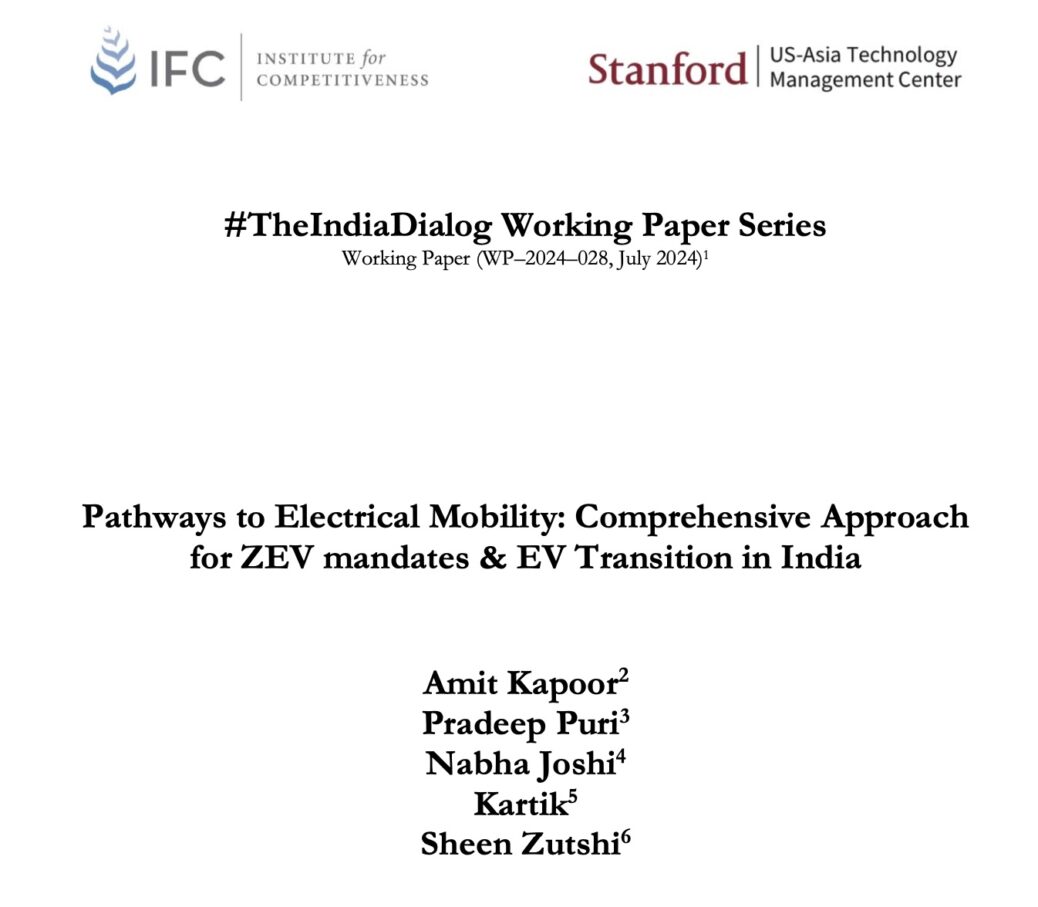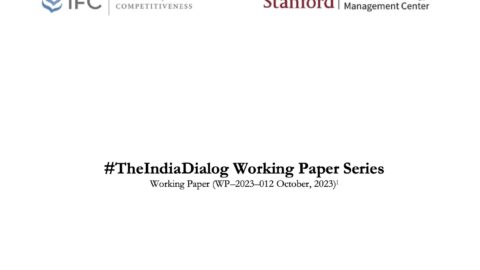By Pradeep Puri, Amit Kapoor, Sheen Zutshi, Nabha Joshi & Kartik
Economies around the world have initiated strategic efforts to promote electric mobility, a pivotal response to escalating concerns over climate change, air pollution, reliance on oil imports, and to secure a vantage point within this emerging sector. The transportation industry is anticipated to be the most rapidly increasing contributor to greenhouse gas (GHG) emissions, with projections suggesting it may surpass 30% of total GHG emissions inforthcoming years. In this context, the adoption of electric vehicles (EVs) emerges as a compelling alternative. (United Nations, n.d.), (United Nations, 2015)).Major economies in the world have undertaken significant steps in this direction with notable advancements already evident. The shift toward EVs has been swift, spurred by diminishing costs in certain established markets. It is reported that electric vehicles constituted 10% of global passenger vehicle sales, a tenfold increase from previous years. Notably, Norway leads with 80% of passenger vehicle sales being all-electric in 2022, followed by Iceland (41%), Sweden (32%), the Netherlands (24%), China (22%), the European Union (12%), and the United States (6%).
The complete paper can be read here.
























